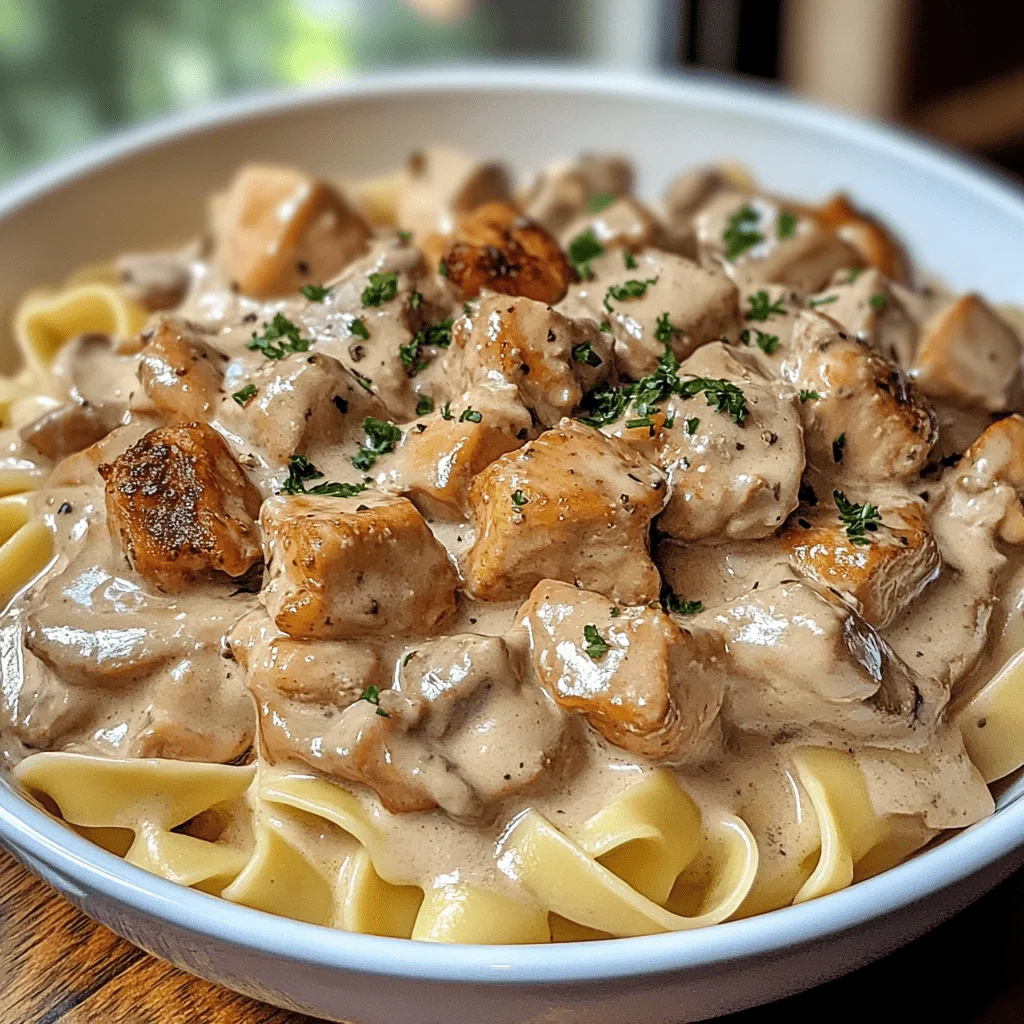Sticky Mongolian Meatballs and Broccoli is a flavorful and satisfying dish that combines tender, juicy meatballs with perfectly roasted broccoli, all smothered in a rich, sticky sauce. This dish features a delightful balance of sweet, savory, and slightly spicy flavors, making it a hit for any palate. The meatballs are infused with ginger and garlic, giving them a fragrant aroma and depth of flavor, while the sauce—made from soy sauce, brown sugar, and a touch of red pepper flakes—provides a luscious coating that makes every bite irresistible.
This recipe is not only delicious but also incredibly easy to prepare, making it ideal for busy weeknights. Whether you’re feeding a family or meal-prepping for the week ahead, these Sticky Mongolian Meatballs and Broccoli are sure to become a staple in your household. Serve them over a bed of rice, and you have a complete, satisfying meal.
Key Ingredients Breakdown
Ground Beef: The foundation of the meatballs is ground beef, which offers a rich and hearty flavor. For the best results, use quality beef with a good fat-to-lean ratio (such as 80/20), ensuring the meatballs stay tender and juicy. High-quality beef also contributes to the overall flavor, making each bite more satisfying. If you prefer a leaner option, ground turkey or chicken can be substituted, but the fat content in beef helps achieve the most succulent texture.
Aromatics (Ginger, Garlic, Green Onions): These ingredients are essential for infusing the meatballs with layers of flavor. Fresh ginger adds a warm, slightly spicy note, while garlic provides a savory depth that complements the richness of the beef. Green onions bring a subtle sharpness and a touch of color to the dish. These aromatics work together to create a fragrant and flavorful base for the meatballs.
Broccoli: Broccoli not only adds a pop of vibrant green color to the dish but also brings significant nutritional benefits. Rich in vitamins C and K, fiber, and antioxidants, broccoli helps balance the richness of the meatballs and sauce. Roasting the broccoli alongside the meatballs allows it to develop a slightly crispy texture and enhances its natural sweetness, making it a perfect companion to the savory meatballs.
The Sauce Components:
- Soy Sauce: This serves as the salty, umami-rich foundation of the sauce. Its deep flavor is essential for creating the signature taste of Mongolian-inspired dishes.
- Brown Sugar: The addition of brown sugar provides a sweet contrast to the saltiness of the soy sauce, resulting in a balanced, sticky glaze that clings to the meatballs.
- Red Pepper Flakes: A small amount of red pepper flakes introduces a mild heat, giving the sauce a gentle kick without overpowering the other flavors.
- Cornstarch: Cornstarch is used to thicken the sauce, ensuring it coats the meatballs perfectly. When mixed with water, it creates a slurry that helps the sauce achieve the desired consistency without being too thick or too thin.
Why You’ll Love This Recipe
There are countless reasons to love this Sticky Mongolian Meatballs and Broccoli recipe. First, it’s incredibly quick and easy to prepare, making it a perfect choice for busy weeknights when time is of the essence. The combination of protein and vegetables in one dish means you don’t have to worry about making multiple sides, simplifying your meal prep.
Additionally, the recipe is highly customizable—you can adjust the spice level to suit your preferences, swap in your favorite vegetables, or even use different proteins like turkey or chicken. This flexibility makes it a versatile dish that can cater to various tastes and dietary needs. Finally, these meatballs reheat beautifully, making them an excellent option for meal prep or leftovers. Whether you’re feeding a family or just yourself, this dish is sure to satisfy and become a go-to in your recipe rotation.
Detailed Cooking Instructions & Tips
Step-by-Step Cooking Instructions
1. Prepping the Ingredients
Before you start cooking, it’s essential to have all your ingredients prepped and ready to go. This process is often referred to as “mise en place,” which means “everything in its place.” Having your ingredients prepared in advance will make the cooking process smoother and more enjoyable.
- Chopping Green Onions: Begin by finely chopping the green onions. You’ll need some for the meatball mixture and more for garnishing the final dish. Slice the green onions thinly, separating the white and light green parts from the dark green tops. The white and light green parts will go into the meatballs, while the dark green tops will be used for garnishing.
- Mincing Garlic: Next, mince the garlic cloves. If you prefer a finer texture, you can grate the garlic using a microplane grater. Garlic is a key flavor component in both the meatballs and the sauce, so make sure it’s finely minced to distribute evenly throughout the dish.
- Grating Ginger: Fresh ginger provides a warm, slightly spicy flavor that’s essential for this recipe. Use a spoon to peel the ginger, then grate it using a microplane grater or the small holes of a box grater. If you’re using ginger paste, you’ll need about 2 tablespoons.
- Cutting the Broccoli into Florets: For the broccoli, cut the head into bite-sized florets. Try to keep the florets uniform in size so they cook evenly. You can also peel and slice the broccoli stems if you like, as they are full of flavor and nutrients.
2. Making the Meatballs
Now that your ingredients are prepped, you can move on to making the meatballs.
- Mixing Ground Beef with Aromatics: In a large mixing bowl, combine the ground beef, chopped green onions (the white and light green parts), minced garlic, and grated ginger. Season with kosher salt and freshly ground black pepper. Using your hands or a spoon, mix the ingredients until just combined. Be careful not to overmix, as this can result in dense meatballs.
- Forming the Meatballs and Placing Them on the Baking Sheet: Once the meat mixture is combined, it’s time to form the meatballs. Using a tablespoon or a small cookie scoop, portion out the mixture and roll it between your palms to form balls about 1 to 1.5 inches in diameter. Place each meatball on one side of a prepared baking sheet lined with foil or parchment paper. Make sure the meatballs are spaced evenly to ensure they cook uniformly.
3. Roasting the Meatballs and Broccoli
- Properly Seasoning and Roasting for Even Cooking: On the other side of the baking sheet, spread out the broccoli florets. Drizzle the broccoli with 1 tablespoon of olive oil and season with kosher salt and freshly ground black pepper. Toss the broccoli to coat evenly with the oil and seasoning. Place the baking sheet in a preheated oven at 450 degrees F and roast for about 15 minutes. The meatballs should be cooked through, and the broccoli should be tender with slightly crispy edges.
4. Preparing the Sauce
While the meatballs and broccoli are roasting, you can prepare the sauce.
- Cooking the Sauce Ingredients Until Thickened: In a large skillet or saucepan, heat 1 tablespoon of vegetable oil over medium-high heat. Add the minced garlic and grated ginger, cooking until fragrant, about 1 minute. Next, add the soy sauce, brown sugar, water, rice wine vinegar, and red pepper flakes. Stir the mixture to combine and bring it to a simmer. In a small bowl, whisk together 2 tablespoons of cornstarch with 1/2 cup of water to make a slurry. Slowly pour the slurry into the simmering sauce, whisking constantly to avoid lumps. Continue cooking the sauce until it thickens and becomes glossy, about 3-5 minutes. If the sauce becomes too thick, you can thin it out with a little more water.
5. Combining Everything
- Tossing the Cooked Meatballs in the Sauce: Once the meatballs are done roasting, remove them from the oven and transfer them to the skillet with the sauce. Toss the meatballs gently in the sauce until they are fully coated. Let the meatballs simmer in the sauce for an additional 2-3 minutes to absorb the flavors.
- Serving Suggestions with Rice and Garnishes: Serve the sticky Mongolian meatballs over bowls of steamed rice, spooning extra sauce over the top. Garnish with the reserved dark green parts of the chopped green onions and a sprinkle of sesame seeds for added texture and flavor. The roasted broccoli can be served on the side or mixed in with the meatballs and rice for a complete, satisfying meal.
Tips and Tricks for Perfect Meatballs
Avoid Overmixing: One of the most common mistakes when making meatballs is overmixing the ingredients. While it’s important to ensure that the aromatics and seasonings are evenly distributed throughout the ground beef, overmixing can cause the meat to become dense and tough. To avoid this, mix the ingredients just until they are combined. Use your hands gently or a spoon, and stop as soon as the mixture looks uniform. The less you handle the meat, the more tender your meatballs will be.
Size Consistency: For evenly cooked meatballs, it’s crucial to keep them uniform in size. If your meatballs vary in size, the smaller ones may overcook while the larger ones remain undercooked. To ensure consistency, use a tablespoon or a small cookie scoop to portion out the meat mixture. Roll each portion gently between your palms to form meatballs that are roughly the same size, about 1 to 1.5 inches in diameter. This will help all the meatballs cook at the same rate, ensuring a tender, juicy result.
Baking vs. Frying: While frying meatballs in a pan can create a deliciously crispy exterior, baking offers several benefits. Baking is a healthier option because it requires less oil, reducing the overall fat content of the dish. Additionally, baking allows you to cook the meatballs more evenly, especially when paired with roasting the broccoli on the same sheet. This method is also more hands-off, allowing you to focus on preparing the sauce while the meatballs and broccoli cook.
Adjusting Spice Levels: The spice level in this dish can be easily adjusted to suit your taste. For a milder flavor, reduce or omit the red pepper flakes in the sauce. If you prefer a spicier kick, increase the amount of red pepper flakes or add a dash of hot sauce or sriracha to the sauce. You can also serve the dish with extra red pepper flakes on the side, allowing each person to adjust the heat to their liking.
Serving Suggestions
Pairing with Rice or Noodles: Sticky Mongolian Meatballs and Broccoli are most commonly served over a bed of steamed white rice, which perfectly absorbs the flavorful sauce. For a healthier twist, consider pairing the dish with brown rice, which adds a nutty flavor and extra fiber. Alternatively, you can serve the meatballs and broccoli over noodles—lo mein, rice noodles, or even spaghetti work well—turning the dish into a comforting, noodle-based meal.
Garnishing Ideas: Elevate your dish with a variety of garnishes that add both flavor and texture. A sprinkle of sesame seeds enhances the dish with a subtle crunch, while finely chopped green onions add a fresh, zesty bite. For an extra layer of flavor, consider adding fresh cilantro leaves, which provide a bright, herbal note. Chopped peanuts or cashews offer a delightful crunch and nutty richness, and for those who enjoy a bit of heat, a drizzle of sriracha or a sprinkle of red pepper flakes can bring an extra kick.
Making it a Complete Meal: To round out the meal, serve the meatballs and broccoli with a light, refreshing side dish. A crisp green salad with a tangy vinaigrette complements the richness of the meatballs. Alternatively, pair the dish with vegetable spring rolls or a simple cucumber salad for a refreshing contrast to the warm, savory meatballs and sauce.
Nutritional Information & Customization Options
Nutritional Breakdown
Calories and Macronutrients: Each serving of Sticky Mongolian Meatballs and Broccoli, assuming a standard portion size of meatballs with rice and broccoli, contains approximately 500-600 calories. The dish provides around 25-30 grams of protein, making it a solid choice for those looking to meet their protein needs. Carbohydrates from the sauce and rice contribute about 50-60 grams per serving, while fat content varies depending on the type of ground beef used, typically ranging from 15-20 grams.
Key Nutritional Benefits: This dish is rich in protein, thanks to the ground beef, which supports muscle growth and repair. The broccoli adds a significant amount of fiber, helping with digestion and keeping you full longer. Additionally, broccoli is an excellent source of vitamins C and K, which support immune function and bone health. The garlic and ginger offer anti-inflammatory and antioxidant properties, making this dish not only tasty but also nourishing.
How to Make it Healthier: For a healthier version, consider using lean ground beef (90/10) or ground turkey, which reduces the fat content without sacrificing protein. You can also reduce the amount of brown sugar in the sauce to lower the calorie count and make the dish more suitable for those monitoring their sugar intake. Additionally, using a smaller portion of rice or opting for brown rice can increase fiber content and provide a more balanced meal.
Customization Ideas
Vegetarian Option: To make this dish vegetarian, you can substitute the meatballs with firm tofu or a plant-based meat alternative. Tofu can be cubed and baked or pan-fried until crispy before being tossed in the sauce. Plant-based ground meat alternatives can be used to create meatballs that mimic the texture and flavor of the original dish, providing a satisfying vegetarian version.
Alternative Proteins: If you prefer a different type of meat, ground turkey, chicken, or pork are excellent substitutes for the ground beef. Ground turkey or chicken offers a leaner option with fewer calories and less fat, while ground pork provides a slightly richer flavor. The cooking process remains the same, allowing you to easily swap proteins based on your preference or dietary needs.
Gluten-Free Version: To make this dish gluten-free, simply replace the soy sauce with tamari or a gluten-free soy sauce alternative. Ensure that other ingredients, like cornstarch and rice wine vinegar, are also gluten-free, as some brands may contain gluten. With these substitutions, you can enjoy all the flavors of the dish without worrying about gluten content.
Low-Sodium Adaptation: For those watching their sodium intake, using a reduced-sodium soy sauce is an easy way to lower the salt content of the dish. You can also decrease the added salt in the meatball mixture and broccoli seasoning. Enhancing the flavors with additional garlic, ginger, or fresh herbs can help maintain a robust taste without relying on salt.










